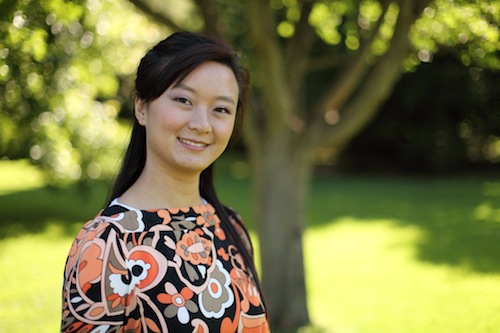International student advocate Wesa Chau wins state honours
INTERNATIONAL student advocate Wesa Chau has been inducted into the prestigious Victorian Honour Roll for Women 2012, for her work in improving the experiences of international students in Australia. But as Meld reporter Amanda Yap learns, there’s still much to be done.
Wesa Chau is a true role model for the Australian international student community.
For years, she has been a dedicated advocate for cultural diversity in Australia, particularly in Victoria, and her work has recently been recognised, yet again, by an induction into the prestigious Victorian Honour Roll of Women 2012. The Department of Human Services award recognises women whose lives and careers have considerably shaped communities for the benefit of all Victorians and their success in overcoming the hurdles that have traditionally limited women’s participation.
One of Wesa’s earliest achievements was founding the Australian Federation of International Students (AFIS) in 2002.
She says the decision to do so was influenced by her friends at university, who were mostly international students.
“We were in clubs and societies and enjoyed our times creating projects and events, but some of them really didn’t have local people to direct them to the right information,” she says.
“In my first year, I helped many of my peers to find the right place to seek information. Initially, I thought it was only because they didn’t listen well enough during orientation. Thinking back, they probably didn’t understand the system enough to understand the presenters.”
Wesa recalls similar experiences from back when she had newly migrated to Australia from Hong Kong.
In those times, she says, it was quite hard for a person from a Chinese background to try to fit into school, socially and academically.
“I remember starting halfway through the year in the first year and having difficulty finding friends,” Wesa says.
“I didn’t have another Chinese in my class, although my sister did, so I remember always going to find her during my breaks.”
For Wesa, learning English took place at an English school that her school referred her to. In hindsight, she thinks the decision was a bad one as she could have probably learnt the language quicker at a regular school.
“This was something that made a strong impression on me – young people learn very quickly, you just have to put them in the right environment,” she says.
Wesa also feels older students shouldn’t rely on interpretation to communicate, unless they’re severely struggling with the language.
“I would advise people to slow down, use simple language, and add some body language,” she says.
All her prior experiences with international students have led Wesa to start a business that develops cultural orientations for new arrivals to Australia to learn about the country’s social norms.
“Many social norms are not obvious to new students, and some of these may affect their acceptance into an Australian society and whether or not they can get a job here eventually,” she says.
For example, she says there are students living in the suburbs who have little knowledge about the bin collection system in Australia. She also refers to media reports of Indian students who have been criticised for talking too loud on the phone in public spaces.
“This is not desirable in Australia, and will create a misperception about all international students,” she says.
“Students should be aware of the potential impact of their behaviour and actions but no one has told them about it.”
When asked if problems that affected international students a decade ago still exist today, Wesa says they’re still the same, mainly because new students come in every year.
“I think the majority of new students would have experienced social isolation and cultural or language barriers, one way or another,” she says.
One issue Wesa has been a strong champion of is getting transport concession fares for international students in Victoria and New South Wales .
“Despite the work people have done before me, during my time, and even now, this issue remains. Transport concession is probably something that every international student in Victoria and New South Wales talks about,” she says.
“It affects them the most, not only because they have to pay, but also because of the feeling of discrimination.”
Wesa says issues such as housing, gambling and safety have also worsened, though she acknowledges this could be an issue for Australians too.
The problems remain largely because “there hasn’t been a strategic approach in shaping the sector by all levels of government, especially Federal”.
“I think ‘education’ is probably the only sector that forgets its customers. Despite the international student strategy, there hasn’t been much money invested into it, nor has it been student focused,” Wesa says.
“The focus is still around how the education providers can make more money (but) the focus should be on the customers.”
By receiving awards such as the Melbourne Youth Award in 2005 and the Young Victorian Award in 2010, Wesa says her work now has further credibility.
“It has definitely opened doors to people I didn’t have access to before, and I have been able to influence decisions that I previously didn’t have the opportunity to,” she says.
But with these awards she’s also felt increased responsibility to further her various causes.
One thing Wesa wants to do with her latest award – her induction into the Victorian Honour Roll of Women 2012 – is create more initiatives for women aged between 25 to 40-years-old to achieve leadership positions, particularly those from culturally diverse backgrounds.
“There is no use pushing for more women to sit on boards, when there are few young women advancing their careers into more senior roles,” she says.
Do you think you could benefit from Wesa’s help or has something she said struck a chord with you? If you answered yes, Wesa wants to hear from you and discuss how you can see change happening. Contact Wesa at wesachau@internationalstudents.org.au.

